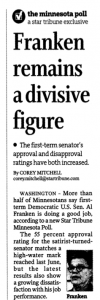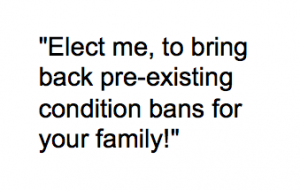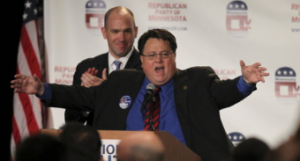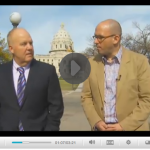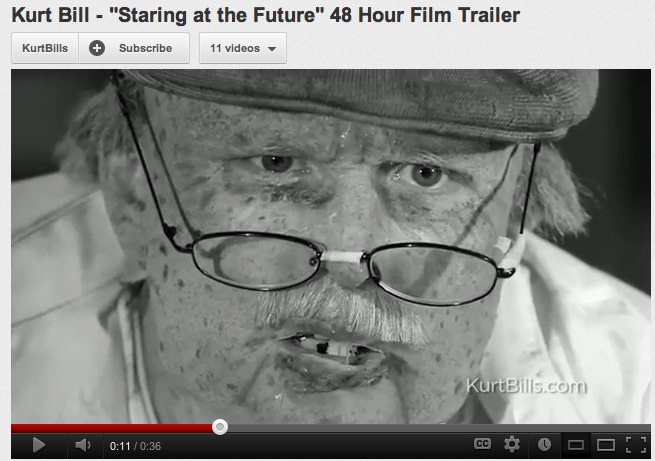U.S. Senator Amy Kloubachar’s virtually invisible campaign opponent Kurt Bills borrows many of his policy ideas from his mentor, libertarian presidential candidate Ron Paul. One of the least discussed of Bills’ proposals is his call for Minnesota to consider issuing its own currency.
Like Congressman Paul, Mr. Bills backs a national return to the gold standard. In addition, Bills has sponsored state legislation to study whether Minnesota should adopt an alternative currency. Bills’ bill (H.F. 1664):
“A joint legislative committee is established to study the adoption of an alternative currency by and for the state of Minnesota and its citizens, in response to the abdication by the United States Congress of its constitutional duty to regulate the value of its money, which it has failed to do through the Federal Reserve System.”
Financial experts are not so sure about Mr. Bills’ state currency idea. For instance David Parsley, a professor of economics and finance at Vanderbilt University was quoted by CNN saying:
“Having 50 Feds” could debase the U.S. dollar and even potentially lead the country into default. The single currency in the United States is working just fine. I have no idea why anyone would want to destroy something so successful — unless they actually wanted to destroy the country.”
Despite the naysayers, the prospect of having a cool new state currency raises many creative possibilities for Minnesotans.
Name. For instance, what would we call the new Minnesota currency?
MinneDollar quickly comes to mind, but that seems much too obvious. Plus, if the dollar collapses, as Mr. Bills foresees, “MinneDollar” wouldn’t inspire much confidence, now would it?
Alternatively, perhaps Minnesota’s dollar could be called “ “The Viking,” to symbolize our ability to dust ourselves off after humiliating defeats, and come back for more humiliating defeats, without ever seeing the epic futility of it all. Very Minnesotan.
Or, the corporatist Republicans controlling the Legislature might prefer to sell off the naming rights of the new Minnesota currency for a price, to someone like Twin Cities Federal (TCF) Bank, which already owns the naming rights to a largely taxpayer-funded stadium, and is run by a former GOP Party Chairman. Yes, Minnesota’s equivalent to “the dollar” could be called “The TCF.”
Finally, there is always “The Gopher.” What better name to carry on Minnesota’s rich tradition of picking really humiliating names to represent our state? Plus, “Golden Gopher?” Gold standard? Get it?
Faces. After we name our new currency, we, of course, need to put a good face on it.
America’s first President, George Washington, preferred faceless money. He was staunchly opposed to putting President’s images on U.S. currency. Modest George thought doing so was too self-aggrandizing, elitist and monarchical. In other words, George was a socialist.
However, something tells me that the likes of Jesse Ventura and Tim Pawlenty wouldn’t let modesty get in the way of monetary immortality for themselves. So we’ll let those former Governors fight it out to determine whose face is on our new Minnesota currency.
Why did I leave current Governor Mark Dayton off my list? Ah shucks, Modest Mark doesn’t need that. (Owning most of the new currency is good enough for him.)
Motto. After our currency has a name and a face, it would need a motto, something akin to the saying on U.S. currency, “In God We Trust.”
If we go with selling off the naming rights, as contemplated above, I guess we’d need the new currency motto to be “Your convenience bank.” Stop whining, it will grow on you.
“In Ron Paul We Trust” also could work, since Mr. Paul is the brainchild of all this, and because he is treated like a deity by his adoring followers.
But given the Minnesota Republicans’ obsession with proving they are tighter with the Almighty than everyone else, the GOP-controlled Legislature would probably make the motto something more like “In God We Trust, Unlike the Godless Liberals.” Bam. On-message.
The more I think about it, though, the more I think my vote for the new Minnesota currency name goes to “The Loon.” I know it’s hackneyed. But loons are graceful creatures with a gorgeous call that is closely associated with Minnesota’s iconic lakes. Loons are our State Bird. “Common Loons” are both beautiful and “common,” just like the great people of Minnesota.
Besides, “The Loon” perfectly captures the merits of the Mr. Bills’ idea.
– Loveland
Note: This post was also featured in the Politics in Minnesota Morning Report “Best of the Blogs” feature, as well as a “best of the best” in Minnpost’s Blog Cabin feature.
 Saint Paul, Minnesota – In news that could shake up Minnesota’s previously sleepy U.S. Senate contest, Republican candidate Mike McFadden announced today that he has landed the endorsement of his young daughter Molly McFadden.
Saint Paul, Minnesota – In news that could shake up Minnesota’s previously sleepy U.S. Senate contest, Republican candidate Mike McFadden announced today that he has landed the endorsement of his young daughter Molly McFadden.
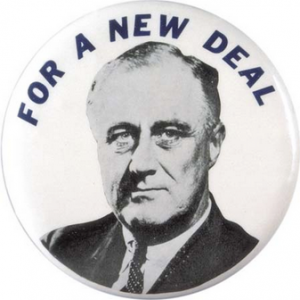 But progressives are also supposed to lead the way forward. The dictionary says a “progressive” is “a person advocating or implementing social reform or new, liberal ideas.”
But progressives are also supposed to lead the way forward. The dictionary says a “progressive” is “a person advocating or implementing social reform or new, liberal ideas.”
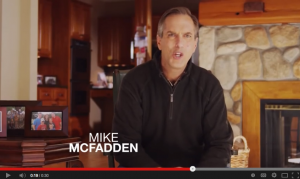 Note the tough, no-nonsense daddy image that McFadden’s political consultants are constructing.
Note the tough, no-nonsense daddy image that McFadden’s political consultants are constructing. 